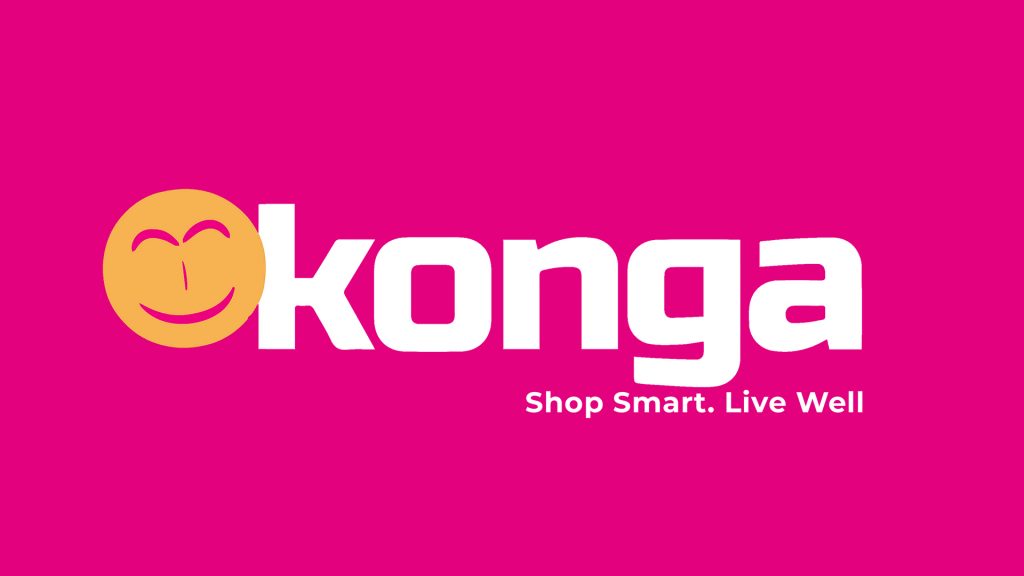Cover Story
Amazon Will Discover e-Commerce in Africa Not a Tea Party
Published
4 years agoon
By Tarila Ben-White, Ph.D.
Feelers indicate that Amazon may now be ready to explore what the continent has to offer on the e-commerce front but the nous and experience of indigenous giants such as Konga will come in handy if it is not to stumble heavily in Africa’s biggest market
It is no longer news that global e-commerce giant, Amazon is all but set to extend its tentacles to Africa. Earlier this month, a South African court ordered a halt on the construction of Amazon’s new African headquarters, a massive 70,000 square metres (17.3 acres) structure. The ruling came after some descendants of the country’s earliest inhabitants said the land it would be built on was sacred.
As reported by Reuters, the Western Cape division of the High Court interdicted the project developer from continuing with works at the Cape Town site until there had been meaningful engagement and consultation with affected indigenous peoples. Among these are the Khoi and the San, two of the earliest inhabitants of South Africa, some of whose descendants had objected to the River Club development, arguing that it lies at the confluence of two rivers considered sacred, the Black and Liesbeek Rivers.
It is important to state, at this juncture, that Amazon has retained a presence in Africa for years. The e-commerce giant has several employees on its payroll working in data hubs located across Cape Town. Notably, the origin of Amazon’s current expansion into Africa began in 2004 when it set up a development centre in Cape Town. Incidentally, that centre eventually went on to build Amazon’s first cloud platform, known as the Amazon Elastic Compute Cloud which heralded its hugely successful cloud computing arm – Amazon Web Services (AWS). Today, AWS is responsible for the lion share of Amazon’s global operating income.
The firm’s adventure in Africa is thus intrinsically tied to its long-standing relationship with the South African city of Cape Town, the oldest and second largest city in that country after Johannesburg. As reported by fDi Intelligence, Amazon, in 2000, had gone ahead with plans to hire 3000 customer support staff in Cape Town. In addition, AWS, its cloud business, had plumped for Cape Town to host its first cloud region in Africa. Furthermore, nine of Amazon’s 19 projects in Africa are located in Cape Town, with five others in Johannesburg. The rest are split between Kenya, Morocco and Egypt.
The foregoing shows Amazon has established its cloud business in parts of the continent. But is it now ready to join the e-commerce race in Africa?

Although still a growing industry, the e-commerce space in Africa has begun to capture the attention and imagination of international investors. Research from Statista indicates that revenue generated via e-commerce in Africa was estimated to be around 27.97 billion U.S dollars in 2020, representing an increase of over $6bn since 2019. Correspondingly, e-commerce revenue in Africa is expected to keep up an upward curve, with estimates projecting the entire e-commerce sector in Africa to reach a value of over $46.1 billion by 2025.
Historically, Amazon is reputed to consider significant expansion into a region only when it becomes commercially viable for its line of business. But despite the fact that the promise of Africa still lies within the realms of potential rather than actuality, e-commerce watchers and analysts are of the view that a budding $46bn market in the next three years or thereabouts is more than enough justification for Amazon to throw its hat into the e-commerce ring.
Stanley Ugboaja, a Ph.D. student and e-commerce enthusiast, captures the prevailing mindset succinctly.
‘‘Africa’s population dynamics naturally makes it a frontier for e-commerce to explode in the next few years. The continent is home to the world’s youngest and second largest population. Digital literacy and numeracy is also on the rise here, same as internet penetration. Many young Africans are gaining useful exposure, either from flocking abroad for further studies or even from working remotely here for foreign firms or multinationals. When you throw in the rise in the number of fintech platforms further expanding the net of the unbanked and under-banked on the continent, you can see that the trends all tilt towards favourable conditions for e-commerce or online shopping to grow.’’
So far, on the e-commerce front, Amazon is only present in a solitary African country. That country is Egypt where Souq, an Amazon subsidiary acquired in 2017 for $580m, operates. Souq, initially founded in Dubai, UAE in 2005, was the largest e-commerce platform in the Arab world. With the acquisition by Amazon, the Egyptian site turned into Amazon.eg on September 1, 2021, officially marking the end of Souq.com.
But if, as anticipated, Amazon’s African adventure will now accommodate playing in the continent’s major e-commerce markets, Nigeria will be uppermost in its reckoning.
In addition to being Africa’s most populous nation, Nigeria remains the leading African economy in terms of nominal GDP in 2021, making up 18.4 per cent of the continent’s $2.7 trillion economy. According to the International Centre for Investigative Reporting (ICIR), Nigeria’s GDP, which measures how much a country produces in financial terms within a year, grew by 11.89 per cent from 2020 to 2021. Likewise, data from the International Monetary Fund (IMF) revealed that Nigeria’s GDP went from $429.423 billion in 2020 to $480.482 billion in 2021, making the country the highest contributor to Africa’s economic output/ GDP and the 29th in the world.
However, cutting it in Nigeria, Africa’s biggest market, will test the might and resilience of Amazon.
Currently dominated by Konga and Jumia, the Nigerian e-commerce market is a challenging ecosystem that has signaled the death knell of many promising players. Although Amazon – especially considering its roaring success in other advanced markets – cannot be placed in the same bracket as some of the startups that have quietly exited the market after finding the Nigerian e-commerce space a mountain too hard to climb, it is fitting to call to mind the instructive words of a globally renowned tech leader and Africa Chair for IEEE World Internet of Things (WIoT), Chris Uwaje.
Uwaje, who is widely hailed as the Oracle of the Nigerian IT Industry, had pinpointed the challenge in cracking the Nigerian e-commerce market as one that lies heavily in the approach or business strategy adopted by most players, many of whom fail to situate foreign business models, ideas and strategies within the culture of the people and Nigeria’s existential realities.
“Nigeria remains a fertile business environment, especially for online-focused ventures such as e-commerce companies. It is also a country with peculiar challenges and a very strong traditional approach to retail which requires a deep sense of local know-how and understanding by players. This is one of the biggest hurdles faced by e-commerce start-ups here. Many e-commerce ventures run with foreign concepts and strategies more suited to foreign climes, making it harder for them to survive the difficult terrain that is the Nigerian business space.”
But beyond the foregoing, the challenge of making a success out of e-commerce in Nigeria is one that is fraught with huge infrastructural and institutional bottlenecks.
The combination of a frustratingly underdeveloped public transport infrastructure network, absence of a proper addressing system across cities, the still-largely traditional shopping predilection of the average Nigerian and the mega-hurdle of logistics, among others, are not issues that having deep pockets alone or a popular name will solve. During the height of the COVID-19 enforced lockdown, the activities of overzealous state actors saw delivery vans conveying essential items to Nigerians delayed needlessly for days on end, or even sent back in some cases – a debacle which almost eroded the gains that accrued from the increased dependence by many Nigerians on e-commerce for safe, contactless shipping during the pandemic and which epitomised the sheer scale of some of the institutional obstacles e-commerce companies may encounter in Nigeria.
Konga, acquired by the Zinox Group from erstwhile majority owners, Naspers and AB Kinnevik, and which has become the first e-commerce company to hit profitability on the continent, may represent a fitting playbook for Amazon to study.
Considering its technology-driven status (a factor that would resonate with Amazon); a revolutionary composite fusion of online and offline which it pioneered and subsequently adopted by other players (including Amazon); the way and manner it has resolved the thorny obstacle of logistics; its massive physical assets strategically located across Nigeria (warehousing, delivery, nationwide physical stores/pick-up locations); penchant for customer service and the confidence it enjoys in the minds of shoppers, among others, Konga stands apart. However, it is in the magic of how it found a way to break the cycle of unprofitability which continues to dog other e-commerce players in Nigeria and Africa – transitioning from a business that once posted monthly losses of over N400m to emerging the first profitable African e-commerce venture – that Amazon would most admire Konga.

Most importantly, under its new owners, the current management of Konga boasts that keen understanding of successfully navigating the difficult terrain that Africa’s biggest market represents. It is a strength which has come to weigh heavily in its advantage, making the Konga template arguably the one to beat. Backed by entrepreneurs with over three decades of consistent success in the Sub-Saharan African technology space, Konga has not only thrived where others have failed or are struggling, but the business is now set, as feelers indicate, for a run across other African markets and a much-anticipated listing on major global exchanges, with a glut of external investors waiting.
Succeeding in the continent’s biggest market, even for a big name like Amazon, may mean seriously considering a partnership with Konga or at least, borrowing a leaf from its strategies.
Amazon would also have to decide if some of the unethical practices it has been accused of would unearth more dire consequences if they were exported to Africa. The e-commerce giant was recently accused of anti-competitive behavior by preventing third-party sellers from offering lower prices for their products on other platforms, including their own websites. The foregoing formed the crux of an antitrust lawsuit filed against Amazon by District of Columbia Attorney General Karl Racine, which was thrown out in court last Friday, according to a report by The New York Times. However, the suit was thrown out partly because Amazon faces a nearly identical lawsuit, in this case, a class action complaint that claims the company pressures sellers into selling products for an equal or lower price than what they offer elsewhere.
Also staring it in the face are allegations of tax avoidance which may land the e-commerce behemoth in hot waters here in Nigeria and elsewhere in Africa. Research reveals that Amazon’s tax behaviours have been investigated in China, Germany, Poland, South Korea, France, Japan, Ireland, Singapore, Luxembourg, Italy, Spain, United Kingdom, multiple states in the United States, and Portugal. According to a report released by Fair Tax Mark in 2019, Amazon is the best actor of tax avoidance, having paid a 12% effective tax rate between 2010-2018, in contrast with 35% corporate tax rate in the US during the same period. Amazon countered that it had an 24% effective tax rate during the same period.
Africa’s budding e-commerce lustre may represent an allure too difficult for Amazon to ignore. Nevertheless, it would discover that this ecosystem will tax its wits, determination, and sheer ability to adapt to their very limits.
But in Konga, Amazon can learn from a proven success story.
Tarila Ben-White (Ph.D.), an e-commerce researcher, writes from Bayelsa
You may like
Action
Mike Adenuga@72: The Man Who Democratized Mobile Telephony in Nigeria
Published
10 months agoon
April 27, 2025The Guru. Visionary. Pacesetter. Colossus. Transformer.
Happy birthday to Otunba Dr. Mike Adenuga (Jnr.), Chairman of Globacom and Conoil PLC as he marks his 72 years birthday on Tuesday April 29, 2025. Cheers to one Nigerian who bestrides the African business landscape.
A special gift to Nigeria, he is renowned for his business acumen. When it is comes to business, he’s got the vision. He can see good fortune light years ahead while others are still pandering whether it is feasible.

Dr. Mike Adenuga (Jnr.) is unafraid to venture where others fear to tread. Fondly called ‘The Bull’ for his fearless and zeal. He’s got this Midas touch that is unparalleled. His boundless energy, philanthropy, native intelligence and wisdom combined stand him out, enabling him to see ahead of others the right sectors and businesses to invest and transform.
Changing Telecom Services Narrative
If there is anyone who single-handedly transformed Nigerian telecommunications industry, that person is no other than Dr. Mike Adenuga (Jnr.). His tenacity to recover his Digital Mobile Licence (DML) which his company won in 2001 mobile auction but was illegally taken away from him, paid off in 2002 when his company, Globacom won the Second National Operator (SNO) licence.
In September 2003, Globacom transformed the Nigerian telecoms market in particular and Africa in general by being the first Global System for Mobile Communication (GSM) operator to launch operations with Per Second Billing, Multimedia Service (MMS), Mobile Internet, in additional to plethora of communications suites simultaneously.
Glo crashed the price of Subscriber Identification Module (SIM) card, leaving other foreign mobile networks scratching their heads in the GSM wars that changed the face of telecom, bringing down the price of SIM Card from N50,000 down to N100 and later to One Naira (N1) only.
Millions of Nigerians became overnight owners of mobile phones lines courtesy of the competition engendered by Glo. Every major step Glo took from the day it commenced operation, other mobile competitors were jittery, helpless and followed the initiative in other to remain in the market.
After establishing the footprints of Glo in Nigeria, Dr. Mike Adenuga (Jnr.), also took the telecom giant to Ghana and Benin Republic with mobile operating licences in those countries. Unsatisfied with the routing of calls from Africa countries to Europe then back to Africa, he built Glo-1, the first international submarine cable system that was solely financed by an individual. Today, Glo-1 links global telecom networks, data centres, banks and Interconnect houses to millions of businesses across the world.
Globacom has going a notch higher with Glo-2 ensuring that Nigerian cities, towns and villages and oil companies are connected to terrestrial fibres through its landing stations in Lagos and Niger Delta.

Digital Financial Services
Dr Adenuga (Jnr.), a man who can see opportunities from afar, has took the lead in procuring Super-Agent licence for Agency Banking and Mobile Money licence from the Central Bank of Nigeria (CBN) with the establishment of Glo Mobile Money and Money Master Payment Service Bank Limited, a Digital Bank delivering financial inclusion services to Nigerians especially in rural, semi-rural and urban areas thus connecting them to the formal sector.
Oil, Gas Transformations
He transformed the face of Nigerian oil, banking, and telecommunications industries. In 1991, when oil mining and production was controlled by foreign multinational companies (MNCs), Dr. Adenuga’s (Jnr.) indigenous oil company was the first to start drilling crude oil. Today, Conoil has metamorphosed into one of the largest African-owned oil conglomerates on the continent with footprints in the upstream, midstream and downstream of the oil and gas sector.
His forays into the bank industry are well documented where he brought a fresh energy and bespoke financial services with Devcom Merchant Bank and Equatorial Trust Bank (ETB) which later merged into Sterling Bank.
Man flowing with Milk of Human Kindness
The humanitarian side of this famous Nigerian billionaire is incomparable. Although, coming from a middle-class family, Dr. Mike Adenuga’s (Jnr.) academic sojourn in the United States of America and the everyday life lessons internalized from his parents, Chief Michael Agbolade Adenuga (Snr) and Madam Oyindamola Adenuga, shaped his worldview and brought out his humane side in the way he deals with people and businesses.
He has been a major supporter of sports, especially football (Nigerian national teams). He has massively sponsored the Confederation of African Football (CAF) Awards for many years. He was honoured the title of Pillar of Football in Africa for his strong support for African Football at both national and continental. He has quietly rendered support to many without seeking media attention.
Through him, Glo sponsors the annual Ojude Oba festival in Ijebuland and also the Ofala festival in Onitsha, Anambra amongst others, promoting Nigeria’s rich culture. He has been major supporting of the Nigerian entertainment industry, turning many Nigerian and Ghanaian actors into instant millionaires through the Glo Ambassador programme.
A lover of education and the arts, Dr. Mike Adenuga (Jnr.) through his companies has sponsored several initiatives such as Glo Campus, and offered scholarships to thousands of the downtrodden to pursue their academic dreams.
Humble Beginnings
A man of outstanding wisdom, Dr. Mike Adenuga (Jnr.) was born Michael Adeniyi Agbolade Ishola Adenuga on April 29, 1953 at Ibadan, Oyo State. His father was a school teacher while his mother was an outstanding businesswoman.
Dr. Adenuga (Jnr) is an alumnus of the famous Ibadan Grammar School, North Western State University, Alva Oklahoma; and Pace University, New York, both in the United States of America where he majored in business administration with emphasis in marketing. As a student in the USA, he supported himself with jobs as a taxi driver and security guard.
Dr. Mike Adenuga (Jnr) is a visionary leader, an outstanding entrepreneur and and manager of people and resources. He is a man of uncommon intellect and wisdom have helped him overcome difficult times. Today, he sits atop a vast telecom, oil and gas (Conoil), banking and real estate investments.
As Dr. Mike Adenuga (Jnr) clocks 72 years on Tuesday April 29th, 2025, SiliconNigeria.ng wishes him a marvelous birthday and many happy returns in good health in the service of the fatherland.
Cover Story
How Mobile Money Topped Two Billion Account Holders
Published
10 months agoon
April 27, 2025Mobile money reached two significant milestones in 2024, surpassing two billion registered accounts and over half a billion active monthly users across the globe. The industry took 18 years to achieve one billion registered accounts and 250 million active users from 2001, but doubled in size in the following five years.
This is according to the ‘State of the Industry Report on Mobile Money 2025’ prepared by the GSMA Mobile Money programme which works to advance the mobile money ecosystem for communities worldwide that lack access to more traditional banking services.
Its latest report finds that transaction volumes and values for mobile money accounts experienced robust double-digit growth in 2024. Approximately 108 billion transactions, totalling over $1.68 trillion, were processed through mobile money accounts in 2024. Year-on-year, transaction volumes increased by 20%, while transaction values grew by 16%, up from a 13% increase in 2023.
In Sub-Saharan Africa alone, year-on-year, mobile money added around $190 billion to GDP in 2023, demonstrating its sustained economic influence. Sub-Saharan Africa remains the world’s most active mobile money region, driven by new registered accounts and rising monthly activity in East and West Africa. East Africa was the leading driver of monthly active account growth in 2024, followed by Southeast Asia and West Africa.
Mobile money continues to play a key role in economic development. By the end of 2023, the total GDP of countries with mobile money services was over $720 billion higher than it would have been without them, reflecting a 1.7% increase in GDP driven by mobile money.
Vivek Badrinath, GSMA Director General comments: “Mobile money has emerged as a powerful driver of financial inclusion and economic growth. Its continued success depends on supportive regulatory environments that promote innovation, accessibility and help unlock the full socio-economic potential. To ensure mobile money remains accessible, affordable, and safe, it is vital for governments and regulators to work with financial service providers to support financial literacy programs, empowering underserved populations and opening new opportunities for financial decision-making.”
Cover Story
NASENI’s Commercial Products Are Market-Ready –Halilu
Published
2 years agoon
June 8, 2024…As House C’tte on NASENI Lends Its Support
The Executive Vice Chairman/Chief Executive Officer, National Agency for Science and Engineering Infrastructure (NASENI), Mr. Khalil Suleiman Halilu, has assured the House of Representatives Committee on NASENI that the Agency’s branded commercial products that have been unveiled are market ready and SON certified.
Mr. Halilu disclosed on Thursday in Abuja when the House Committee on NASENI paid an oversight visit to the Agency’s Headquarters to inspect its products and projects towards robust research in technological advancement in Defense/Security Sector, Agricultural Sector, Infrastructural Sector and other areas of human endeavours.
Among the recently unveiled products include NASENI Laptop, Android Smartphone, Lithium Battery, LED Solar Street Light, Solar Irrigation System, Electric Bicycle, Electric Keke and Keke Cargo. The EVC used the visit to showcase two NASENI electric vehicles (EV) to the lawmakers.

According to Halilu, NASENI has been at the forefront of driving Nigeria’s technological advancement and industrialization. “Over the past few months, we have implemented several key initiatives aimed at transforming our operations from primarily research-based activities to the commercialization of our products and services.
“This transformation is essential for us to contribute more effectively to the national economy and to achieve sustainable development goals,” he said, adding that 85 per cent of NASENI projects are on counterpart funding. “We don’t want to invest alone in what we do and that is why we work with our 3C’s principle of Collaboration, Creation and Commercialization, thereby engaging the services of private sector by partnering with them to ensure that we deliver on our mandate.
He stated that about 35 products of NASENI under his watch are market ready. “We are ready for Nigerian market and we want the honourable members to be our first ambassadors. Also, we are establishing show-rooms in all the 36-states of the federation for marketing of our products. Every activity we do, we have commercial plan. We don’t want our products to end up in shelves, but to get to the end users”, he stated.
Highlighting on achievements NASENI has made so far, the EVC/CEO listed some of them to include: Innovation and Research Development, Product Commercialization, Renewable Energy Projects and Capacity Building. He however, called on the lawmakers to keep supporting NASENI to deliver to the nation, especially in creating jobs for teaming Nigerian youths.

In his speech, the Chairman, House Committee on NASENI, Hon. Otunba Abimbola Ajilesoro, said the essence of the oversight visit is to have an opportunity to interact with the Agency towards robust research in technological advancement in Defense/Security Sector, Agricultural Sector, Infrastructural Sector and other areas of human endeavours, adding that it will in turn save and bring in much needed foreign exchange that will impact positively on the economy.
He pointed out that the committee has been following the activities of the Agency. “We have been hearing NASENI branded products, NASENI Laptops, NASENI Android Smartphone, NASENI Lithium Battery, NASENI LED Solar Street Light, etc. The Committee deems it necessary to see for ourselves, these products and other technologies that will enhance Nigeria’s economy.”
Speaking on the mandates of the NASENI Development institutes, he assured NASENI of the Committee’s readiness to support it in the areas of Appropriation and Legislative framework that will strengthen the Establishment Act to enable the Agency deliver effectively.
“However, while the committee will continually give all necessary support periodically, it will demand for accountability and value for money in the implementation of the lofty programmes embedded in the mission and vision of the Agency. This would enable us expand, deepen and create an enduring part for a sustainable technological advanced Industrial hub within the country of Nations”, he affirmed.